 Libri di Tristram Hunt su Unilibro.it) Libri di Tristram Hunt su Unilibro.it)
|
|
1919 |
 Title :
Building Jerusalem
Title :
Building JerusalemAuthor: Tristram Hunt Publisher: PENGUIN GROUP € 20,20
|
|
|
1915 |
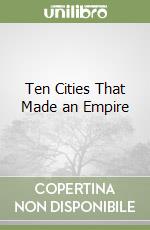 Title :
Ten Cities That Made an Empire
Title :
Ten Cities That Made an EmpireAuthor: Tristram Hunt Publisher: PENGUIN GROUP € 12,90
|
|
|
1914 |
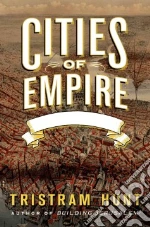 Title :
Cities of Empire
Title :
Cities of EmpireAuthor: Hunt Tristram Publisher: Henry Holt & Co An original history of the most enduring colonial creation, the city, explored through ten portraits of powerful urban centers the British Empire left in its wake At its peak, the British Empire was an urban civilization of epic proportions, leaving behind a network of cities which now stand as the economic and cultural powerhouses of the twenty-first century. In a series of ten vibrant urban biographies that stretch from the shores of Puritan Boston to Dublin, Hong Kong, New Delhi, Liverpool, and beyond, acclaimed historian Tristram Hunt demonstrates that urbanism is in fact the most lasting of Britain’s imperial legacies. Combining historical scholarship, cultural criticism, and personal reportage, Hunt offers a new history of empire, excavated from architecture and infrastructure, from housing and hospitals, sewers and statues, prisons and palaces. Avoiding the binary verdict of empire as “good” or “bad,” he traces the collaboration of cultures and traditions that produced these influential urban centers, the work of an army of administrators, officers, entrepreneurs, slaves, and renegades. In these ten cities, Hunt shows, we also see the changing faces of British colonial settlement: a haven for religious dissenters, a lucrative slave-trading post, a center of global hegemony. Lively, authoritative, and eye-opening, Cities of Empire makes a crucial new contribution to the history of colonialism. € 29,40
|
|
|
1911 |
 Title :
English Civil War at First Hand
Title :
English Civil War at First HandAuthor: Tristram Hunt Publisher: PENGUIN GROUP € 15,30
|
|
|
1910 |
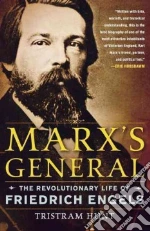 Title :
Marx's General
Title :
Marx's GeneralAuthor: Hunt Tristram Publisher: Picador USA 'Written with brio, warmth, and historical understanding, this is the best biography of one of the most attractive inhabitants of Victorian England, Marx's friend, partner, and political heir.'—Eric Hobsbawm Friedrich Engels is one of the most intriguing and contradictory figures of the nineteenth century. Born to a prosperous mercantile family, he spent his life enjoying the comfortable existence of a Victorian gentleman; yet he was at the same time the co-author of The Communist Manifesto, a ruthless political tactician, and the man who sacrificed his best years so that Karl Marx could have the freedom to write. Although his contributions are frequently overlooked, Engels's grasp of global capital provided an indispensable foundation for communist doctrine, and his account of the Industrial Revolution, The Condition of the Working Class in England, remains one of the most haunting and brutal indictments of capitalism's human cost. Drawing on a wealth of letters and archives, acclaimed historian Tristram Hunt plumbs Engels's intellectual legacy and shows us how one of the great bon viveurs of Victorian Britain reconciled his exuberant personal life with his radical political philosophy. This epic story of devoted friendship, class compromise, ideological struggle, and family betrayal at last brings Engels out from the shadow of his famous friend and collaborator. € 25,00
|
|
|
2010 |
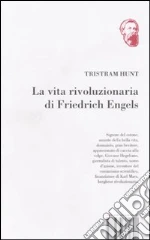 Title :
La vita rivoluzionaria di Friedrich Engels
Title :
La vita rivoluzionaria di Friedrich EngelsAuthor: Hunt Tristram Publisher: Isbn Edizioni 'Marx era un genio, noialtri al massimo avevamo talento' disse Friedrich Engels alla morte del suo amico di sempre. Eppure, l'uomo spesso ricordato soltanto come il braccio destro di Marx ebbe una vita davvero fuori dal comune. Figlio di una ricca famiglia prussiana, industriale tessile nella Manchester dell'Ottocento, Engels visse un'esistenza da vero capitalista - donne, champagne, vestiti eleganti - affrontando allo stesso tempo il fuoco delle rivolte e dei primi movimenti operai. Sacrificò tutto se stesso alla causa comunista, sostenendo economicamente Marx e la sua famiglia per quasi quarant'anni. La sua esperienza sul campo fu fondamentale e diede forma alla parte politica, sociologica, culturale di una delle più ambiziose analisi dello 'stato di cose presenti' mai tentate, oggi sorprendentemente attuale dopo gli orrori del comunismo reale, nella claustrofobia ideologica del capitalismo globale e della 'fine della storia'. € 27,00
Scontato: € 25,65
|
|
|
1910 |
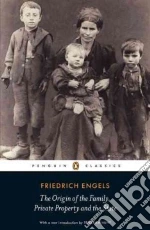 Title :
The Origin of the Family, Private Property and the State
Title :
The Origin of the Family, Private Property and the StateAuthor: Engels Friedrich, Hunt Tristram (INT) Publisher: Penguin Classics The Origin of the Family, Private Property and the State (1884) is a provocative and profoundly influential critique of the Victorian nuclear family. Tracing the evolution of family units from prehistory to the present, Engels argued that the traditional monogamous house-hold was in fact a recent construct, closely bound up with capitalist, property-owing societies. Under this patriarchal system, women were servants and, effectively, prostitutes. Only Communism, Engels argued, would herald the dawn of communal living and a new sexual freedom and, in turn, the role of the state would become superfluous. Though it has since been criticized for its anthropological orguments, Engels's work influenced millions, both as an inspiration for feminists and as a justification for policies in countries such as China. It still resonates today as a fearless assault on sexual inequality. Tristram Hunt's introduction to this edition discusses the inspiration for the Origin, places it in the context of Marxist historical materialism, explores the tensions between Engels's writing and his life, and analyses critical responses to the text. € 23,10
|